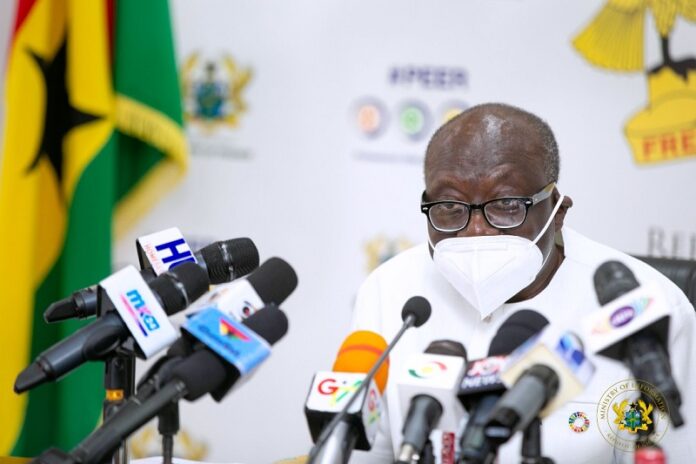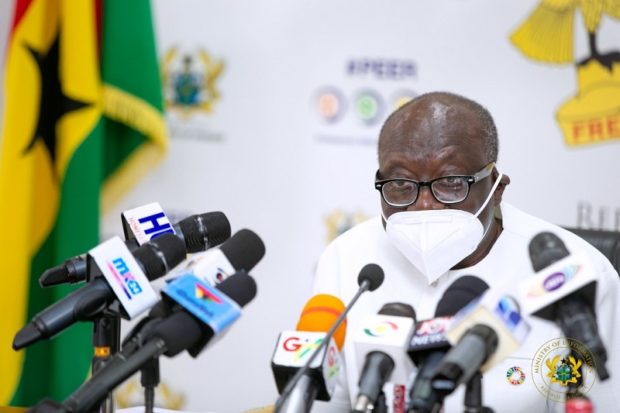
The Minister for Finance Ken Ofori-Atta has described the opposition National Democratic Congress (NDC’s) stance on the Electronic Transaction, E-Levy as misplaced.
The Minority in Parliament on Friday(28 January) rejected a reduction of the Electronic Transaction Levy to 1.5% from 1.75% after further consultation.
Speaking at a town hall meeting on E-Levy in Takoradi in the Western Region, Ofori-Atta said the number of people paying tax towards development is woefully inadequate.
“So I think the NDC’s stance about not having E-Levy may be misplaced … It is not because they are not patriotic, but when we do the numbers you will realise that clearly, we are at a point in our nation’s history that we need to do things differently.”
He added, “To be able to cross the issues that are confronting us such as youth unemployment, which affects all of us and really goes to the dignity of people who are home and the issue of our debt so that we can start mobilising our resources, but to be able to do that is to ensure that all of us contribute.”
“So the argument could be killed immediately if you say that ..we have only 2.4 million people contributing taxes for the whole nation.., now that can’t be right, you know that,” he said.
The Finance Minister says the government has performed tremendously well in the past five years with various initiatives to cushion Ghanaians.
“When you look really at what Akufo-Addo has done, there has never been interventions of that level, with regards to secondary education, healthcare, the under-privileged etc., ” he added.
Missed start date
Presenting the 2022 Budget Statement in Parliament in November last year, the Finance Minister said the government has decided to place a levy on all electronic transactions to widen the tax net and rope in the informal sector.
Ken Ofori-Atta said the new charge will be known as the “Electronic Transaction Levy, or E-Levy”.
“Electronic transactions covering mobile money payments, bank transfers, merchant payments and inward remittances will be charged at an applicable rate of 1.75%,” Ofori-Atta said, “which shall be borne by the sender except for inward remittances, which will be borne by the recipient.
“This new policy comes into effect from 1 February 2022. The government will work with all industry partners to ensure that their systems and payment platforms are configured to implement the policy.”
As of January 2021, 38.9% of the population aged 15 and above had a mobile money account in Ghana.
The population share of mobile money users increased over the previous three years but decreased slightly in 2021 from 39% in 2020.
Source: Asaaseradio.com
 Home Of Ghana News Ghana News, Entertainment And More
Home Of Ghana News Ghana News, Entertainment And More





